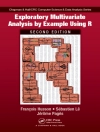This book resolves a key problem that all evaluators need to attend to:, i.e., what constructs ought to be measured?, all the while giving them practical ways of doing this. It also presents data showing family court judges like the model, and it does this fairly briefly but in a way that is nicely embedded in the research literature.
表中的内容
Introduction.- Past and current state of the field.- Review of child outcome literature.- Development of the egregious/promotive factors model.- The present stufy.- Methodology.- Results.- Discussion.
关于作者
Lauren Woodward Tolle, Ph.D. is a postdoctoral fellow at the Behavioral Health and Wellness Program (BHWP) through the University of Colorado Denver’s Department of Psychiatry. She also has a Master’s degree in Applied Health Psychology from Northern Arizona University. Lauren completed her pre-doctoral internship at the University of Colorado, Denver School of Medicine in rural integrated primary care psychology. Lauren’s research interests include evaluating clinical outcomes of evidence-based practice in primary care as well as pediatric settings. O’Donohue earned a Bachelor’s degree in psychology at University of Illinois Urbana-Champaign. He went on to study clinical psychology at SUNY at Stony Brook earning a Master’s degree in 1982 and a Ph.D. in 1986. He then earned a Master’s degree in philosophy in 1988 from Indiana University Bloomington. He was an assistant professor of psychology at the University of Maine, Orono from 1987 to 1991. In Harrington v. Almy the United States Court of Appeals for the First Circuit found that a penile plethysmograph test ordered to be administered by O’Donohue as a precondition of employment was a violation of a Maine police officer’s rights under the Fourteenth Amendment to the United States Constitution.[3][4] In 1996, he was appointed Director of Sexual Assault Prevention and Counseling Services at University of Nevada, Reno. O’Donohue founded Care Integra with colleagues in 1999 and serves as CEO. O’Donohue has been critical of the use of forensic evaluations administered to litigants in child custody disputes. He told the New York Times, ‘Psychologists don’t have the knowledge to do what they attempt to do when they do custody evaluations, ‘ adding that custody decisions are more about competing values than scientific findings when determining a child’s best interest












